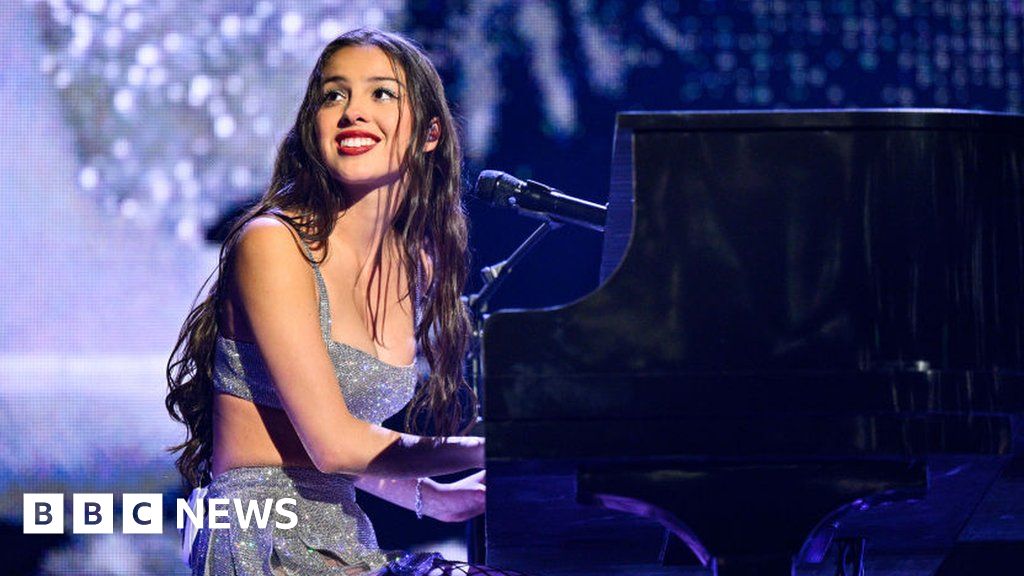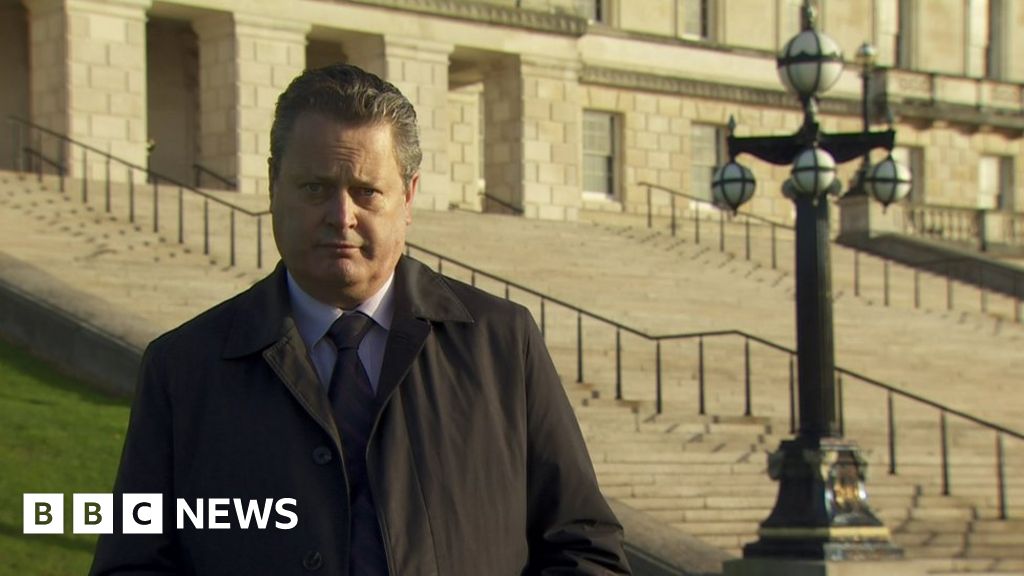Far-right firebrand politician Geert Wilders, who was banned from Britain for being too extreme, has won a 'monster victory' in yesterday's Dutch general election that has shaken the Netherlands and Europe.
The 60-year-old, who is anti-Islam and known as the 'Dutch Trump', now faces an uphill struggle today to woo rivals to form a coalition government in parliament.
His PVV (Freedom Party) won 37 seats, more than doubling his share from the last election and outstripping opponents, according to near complete results.
A left-wing bloc trailed far behind on 25 seats, with the centre-right VVD on 24, a catastrophic result for the party of outgoing Prime Minister Mark Rutte.
The result puts Wilders in line to lead talks to form a new ruling coalition in the country's 150-seat parliament, and possibly become the country's first hard-right prime minister at a time of political upheaval through much of the continent.
'I had to pinch my arm,' a jubilant Wilders said. Addressing cheering supporters in The Hague after exit polls, he doubled down on his anti-immigrant rhetoric, saying the Dutch had voted to stem the 'tsunami' of asylum-seekers.
'The PVV can no longer be ignored,' he cried, urging other parties to do a deal.
The unexpected landslide win prompted immediate congratulations from fellow far-right leaders in France and Hungary but will likely raise fears in Brussels - Wilders is anti-EU and wants a vote on a 'Nexit' to leave the bloc.
Although he softened his anti-Islam rhetoric during the campaign, the PVV programme pledges a ban on the Koran, mosques and Islamic headscarves and Muslim community leaders in the Netherlands were quick to voice concern.
Far-right firebrand politician Geert Wilders (pictured in the wake of exit polls), who was banned from Britain for being too extreme, has won a 'monster victory' in yesterday's Dutch general election that has shaken the Netherlands and Europe
'I had to pinch my arm,' a jubilant Wilders said in the wake of the exit polls. He was seen in a video celebrating the results as they came up on Dutch television
As of Thursday morning, it is not clear how he can scrape together the 76 seats he needs for a majority in the 150-seat parliament.
Former European Commissioner Frans Timmermans, whose Green/Labour bloc came in second, immediately ruled out cooperation, saying it was now their job to 'defend democracy' in the country.
Anti-corruption champion Pieter Omtzigt, whose New Social Contract party scored 20 seats, seems certain to play a role and indicated he was 'available' for talks, but admitted they wouldn't be easy.
Dilan Yesilgoz, who led the centre-right VVD to a disappointing 24 seats, was coy on election night, saying Wilders would have to see if he can forge a coalition.
She first opened the door to Wilders joining a VVD-led government but has stressed she would not serve under him.
Diederick van Wijk from the Clingendael Institute told AFP news agency the Netherlands was now in 'uncharted territory' after the 'landslide victory' of Wilders.
'A Prime Minister Wilders could be within reach,' he said.
Wilders has built a career from his self-appointed mission to stop an 'Islamic invasion' of the west, but during his campaign sought to tone down his message, saying he could put some of his more strident views on Islam 'in the freezer'.
He stressed he would be prime minister for everyone 'regardless of their religion, background, sex or whatever', and insisted the ongoing cost-of-living crisis was a bigger priority. But his opponents allege his PVV manifesto tells a different story.
Wilders is known as the 'Dutch Trump', partly for his swept-back dyed hairstyle that resembles the former US president, but also for his rants against immigrants and Muslims.
From calling Moroccans 'scum' to holding competitions for cartoons of the Prophet Mohammed, Wilders has built a career from his self-appointed mission to stop an 'Islamic invasion' of the West.
With hallmark Wilders rhetoric, the PVV manifesto says: 'Asylum-seekers feast on delightful free cruise-ship buffets while Dutch families have to cut back on groceries.'
The programme proposes a ban on Islamic school, Korans and mosques. Headscarves would be banned from government buildings. 'The Netherlands is not an Islamic country,' it adds.
Supporters of Dutch far-right politician and leader of the PVV party Geert Wilders react to the exit poll and early results in the Dutch parliamentary elections, in The Hague, Netherlands November 22, 2023
Supporters of Dutch far-right politician and leader of the PVV party Geert Wilders react to the exit poll and early results in the Dutch parliamentary elections, in The Hague, Netherlands November 22, 2023
If confirmed in the final results, Geert Wilders' victory marks a sharp lurch to the right that will be viewed with trepidation in Brussels - the PVV has promised a referendum on Dutch membership of the European Union (File Photo)
Muslim community leaders in the Netherlands were quick to voice concern.
'I don't know if Muslims are still safe in the Netherlands. I am worried about this country,' Habib el Kaddouri from the SMN association of Moroccan Dutch, told local agency ANP.
Lizette Keyzer, a 60-year-old business manager from Enschede in the east of the Netherlands, said she had 'heart palpitations' when the exit poll results came out.
The country 'is going in a right-wing direction. We hope that this does not completely become the case', added Keyzer.
He has also campaigned on holding a 'binding referendum' on 'Nexit' - the idea of the Netherlands leaving the EU.
The PVV also calls for an 'immediate halt' to development aid. On foreign policy, the parallels to Trump are clear. 'Netherlands first,' trumpets the manifesto.
The PVV would move the Dutch embassy to Jerusalem to support Israel, a 'close friend and the one true democracy in the Middle East'.
Wilders has remained defiant despite brushes with the law and death threats that have meant he has been under constant police protection since 2004.
'I don't regret fighting for freedom,' Wilders told AFP in an interview ahead of 2021 election. 'Of course I take a stand. I am under attack, my country is under attack.'
He was found guilty of discrimination in 2016 over comments he made against Moroccans living in the Netherlands and has previously likened the Koran to Adolf Hitler's 'Mein Kampf', saying both books should be banned.
Dutch far-right politician and leader of the PVV party, Geert Wilders votes during the Dutch parliamentary elections, in The Hague, Netherlands November 22, 2023
PVV leader Geert Wilders is seen casting his vote in the Dutch General Elections on November 22, 2023 in The Hague, Netherlands
Dutch far-right politician and leader of the PVV party, Geert Wilders votes at a polling station during the Dutch parliamentary elections, in The Hague, Netherlands November 22, 2023
As the results came in, Kate Parker, from the Economist Intelligence Unit, warned a Nexit vote would lead to 'constitutional stalemate' in the EU's fifth-largest economy.
But Wilders, as he voted, told reporters: 'It might not be what other parties in Europe or in other countries strive for but, hey, that's democracy.'
Wilders was forced to shelve plans for a cartoon competition of the Prophet Mohammed in 2018 after receiving death threats.
He was competing in his sixth election, having come close to pulling off a stunning upset more than once.
'When I left my old party (the VVD)... I said one day we will become the biggest party,' Wilders told reporters while casting his vote.
If the exit polls are confirmed, his decades-old prediction looks to have come true.
Born in 1963 in southern Venlo, close to the German border, Wilders grew up in a Catholic family with his brother and two sisters.
His mother was half-Indonesian, a fact Wilders rarely mentions.
He developed an interest in politics in the 1980s, his older brother Paul told Der Spiegel magazine.
'He was neither clearly on the left or the right at the time, nor was he xenophobic. But he was fascinated by the political game, the struggle for power and influence,' Paul Wilders said.
PVV leader Geert Wilders is seen casting his vote in the Dutch General Elections on November 22, 2023 in The Hague, Netherlands
Geert Wilders gets into a car outside a polling station on the day he votes during the Dutch parliamentary elections, in The Hague, Netherlands November 22, 2023
His hatred of Islam appeared to have developed slowly. He spent time in Israel on a kibbutz, witnessing first-hand tensions with the Palestinians.
He was also shocked by the assassinations of far-right leader Pim Fortuyn in 2002 and the radical anti-Islam filmmaker Theo van Gogh in 2004.
'I remember my legs were shaking with shock and indignation,' he wrote in a 2012 book discussing when he heard the news of Van Gogh's murder. 'I can honestly say that I felt anger, not fear.'
Wilders entered politics in 1998 in the Liberal VVD party. During his early days in politics he started dying his brown hair blonde and learned his media-savvy ways, even as his views became increasingly silenced.
Over the years he vowed not to be silenced, despite being convicted of insulting Moroccan-Dutch citizens.
Indeed, that high-profile trial boosted his visibility only months after Brexit and just as Donald Trump won the US presidential race.
In 2006 he quit the VVD to found his own party and in 2017 it became the second largest in parliament, falling back to third largest in 2021.
General election in the Netherlands in a historic moment citizens vote for the next government. Dutch voters go the polls, they line up to cast their ballots in Eindhoven on November 2
By tapping into a seam of Dutch discontent Wilders also managed to push the political discourse in the Netherlands to the right.
But Wilders also cut an isolated figure. He was married to a Hungarian woman, but they had no children. When not posting anti-Islamic invective on his one social media account, he posted pictures of their cats on another.
His party consisted of just one person: himself. And his security meant he had little contact with the outside world.
'Geert's world has become very small,' his brother told Der Spiegel. 'It consists of the parliament, public events and his apartment. He can hardly go anywhere else.'

 5 months ago
5 months ago
.png)









